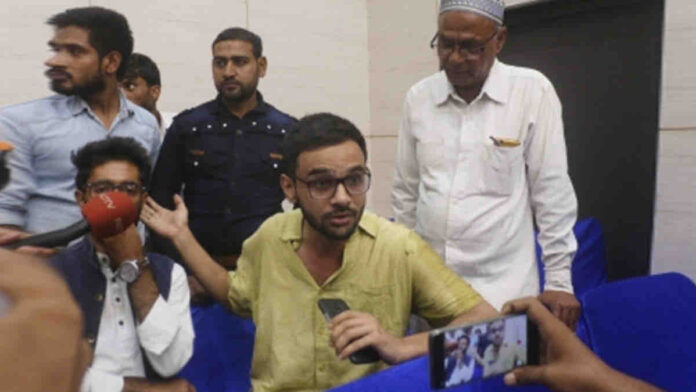In the Delhi High Court, activist Umar Khalid defended his participation in WhatsApp groups, arguing that it does not prove criminality or justify charges under the Unlawful Activities (Prevention) Act (UAPA) linked to the February 2020 riots. During the hearing, his counsel, Senior Advocate Trideep Pais, sought bail for Khalid, refuting claims by the prosecution that his client orchestrated violence through these digital platforms.
The hearing, presided over by Justices Navin Chawla and Shalinder Kaur, delved into the specifics of the allegations against Khalid. Pais contended that Khalid’s involvement in the WhatsApp groups was passive and highlighted that his client had not actively engaged or posted any messages that could be deemed incendiary or criminal. “Merely being in a group is not an indicator of any criminal wrong,” Pais argued, challenging the basis of the UAPA charges against Khalid.
Pais further compared Khalid’s situation with co-accused Devangana Kalita, noting that despite facing more severe allegations related to the same incidents of violence, Kalita had been granted bail. He emphasized that no concrete evidence, such as recovery of incriminating materials, was presented against Khalid, and that the accusations were largely based on hearsay from protected witnesses.
Highlighting the lengthy pre-trial incarceration of his client, Pais pointed out that Khalid has already spent 4.5 years in jail with the trial still pending due to procedural delays. He cited the slow pace of the judicial process, with 800 witnesses involved and charges yet to be framed, as further grounds for granting bail.
The defense also addressed the broader context of the 2020 riots, which resulted in 53 deaths and over 700 injuries, occurring amidst widespread protests against the Citizenship Amendment Act (CAA) and the National Register of Citizens (NRC). Khalid’s counsel questioned the criteria used by Delhi Police to implicate him in the conspiracy, suggesting a lack of direct evidence linking him to any planned violence.
Delhi Police have opposed the bail plea, asserting that Khalid, along with others like Sharjeel Imam, incited fear and violence through their speeches and participation in the protests. The police claim that these activities were coordinated through WhatsApp groups and led to significant unrest, as evidenced by numerous FIRs filed in connection with the riots.




